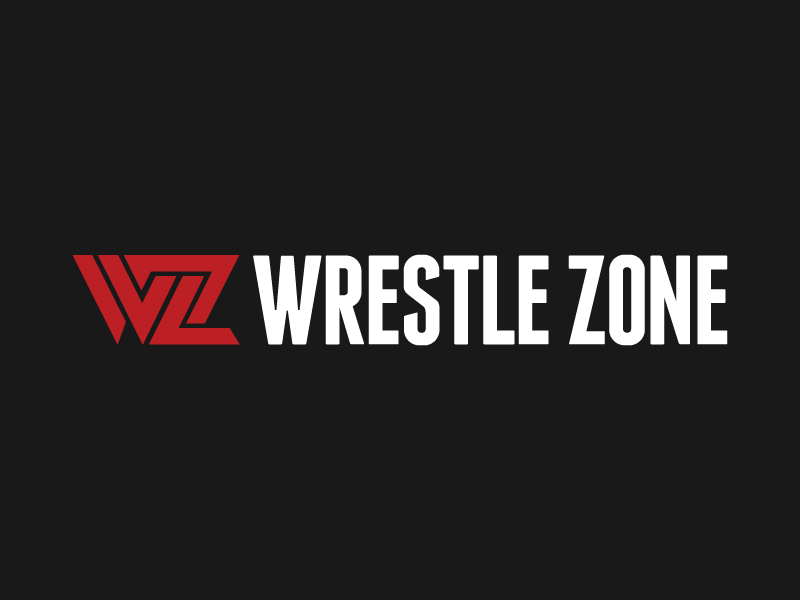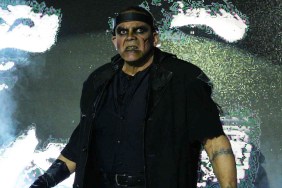Surprise has ruined the wrestling business. Surprise has become the go-to device of the lazy booker. Surprise…just isn’t surprising.
The overrating of surprise was never more evident than during TNA’s gutsy two-month head-to-head run against WWE on Monday night. (Note, please, my unbridled sarcasm. Even the Sudetenland put up more of a fight.)
To handle an endeavor of that magnitude, TNA needed to have three or four months booked in advance, with alternatives at the ready in case of injury, unexpected fan reaction, etc. TNA obviously didn’t do that. TNA just counted on RVD, Jeff Hardy, etc. and the electricity produced by their surprise appearances.
It wasn’t near enough.
Pretty soon you got guys feuding over rings. You got the world champ making pot references. You got guys who were stars in WWE stiffing in TNA. Before you know it, you’re back on Thursday nights, and your ratings still suck. TNA should have the entire promotion don a Yellow Dog costume.
Vince Russo has got to be the laziest booker in wrestling history. He’s one of those guys who talks so much about how hard he works, X amount of people believe it. But Russo’s booking has always been based on swerves and surprises. That’s easy, especially when there’s no accountability when the swerves and surprises fail. It takes no imagination. Logical, episodic long-term booking does.
Want proof that logical, episodic long-term booking supersedes surprise? Consider Hulk Hogan’s WWE title victory over Iron Sheik in 1984, or Sting’s NWA championship win over Ric Flair at the 1990 Great American Bash. Everyone knew what was going to happen long before it happened. But that was OK, because the marks were prepared for it in a logical fashion and the result was one they wanted to see. Sting’s win in Baltimore – which, admittedly, did not lead to long-term success – is a prime example. Fans showed up specifically to see what they expected, and blew the roof off when it did. I’ve never heard a louder pop live.
The nWo invasion reinforced the value of surprise. Who will be the next invader? Who will be the next to join the nWo? But once surprise is your go-to device, laziness sets in. That’s how the nWo got too big, less elite, and less of a faction based on a specific notion (ex-WWE stars). Surprise created the nWo. Surprise killed it, too.
Continued on page two …
The best turns aren’t surprises. The best turns are the ones built logically. When Larry Zbyszko wanted a match against his mentor, Bruno Sammartino, to “prove himself,” how could you NOT know how that would end? When Ole Anderson somehow maneuvered Dusty Rhodes into a cage with himself, Gene Anderson, the Assassins and Ivan Koloff, how could you NOT figure out what would happen? But what happened didn’t suffer because of that. If anything, it was enhanced.
Surprise rarely has subtlety. The girl jumps out of the cake, and that’s it. Some great turns have been foreshadowed by a sidelong glance between tag partners during an interview. Even if you operate under the premise that wrestling fans are all idiots (as most bookers do), even idiots can perceive subtlety. And if they can’t, that’s no reason to cheat the rest of the audience. The idiots can catch up at their own speed. Do things right.
Booking episodic TV is hard work. It takes long hours. It takes an ability to deal with rejection. It takes intelligence and logic. It obviously takes more than anyone at TNA or WWE is able to contribute. It’s supposed to be difficult. Surprise is the shortcut.
I spend more time watching old-time wrestling on YouTube than I do watching TNA or WWE. Ole Anderson’s aforementioned turn in 1980, Flair-Funk in 1989, the unscripted interviews, the booking’s continuity…I refuse to believe it can’t be that good again. That hope, however vain, is what keeps me watching.
Watch glory-days ECW on YouTube. I’m not trying to denigrate that product, but I remember it being a lot better the first time around. It was just so revolutionary, so different. But now, with so much time having elapsed, the bare-bones production, the minor-league nature of so many performers, the grimy look – in a perverse way, it’s a tribute to the ability of Paul Heyman.
Heyman not only knew how to emphasize strengths, he obscured weaknesses. The latter may be more important than the former. Look at Public Enemy. Main-eventers in ECW, total busts everywhere else. Heyman let them dance, and the crowd danced with them. WWE and WCW made them work, and the crowd crinkled its collective nose in disgust. Look at Sandman. Great ring entrance. Why emphasize anything else? But WWE and WCW did.
Raven’s ECW promos certainly stand the test of time. Dementia plus intelligence = wrestling’s Kurt Cobain. A truly new character. Always remember one thing about ECW: If it had really worked, it would still be around. If it had made money, it would be still around. It was a niche promotion, a product crafted for hardcore fans and newsletter geeks. Those people loved it. But you’ve got to be mainstream to make money. Doesn’t mean Heyman’s not a genius. He did the best he could with what he had, and then some.
Mark Madden hosts a radio show 3-6 p.m. weekdays on WXDX-FM, Pittsburgh. Check out the Mark Madden page at WXDX.com. Contact Mark via wzmarkmadden@hotmail.com.








